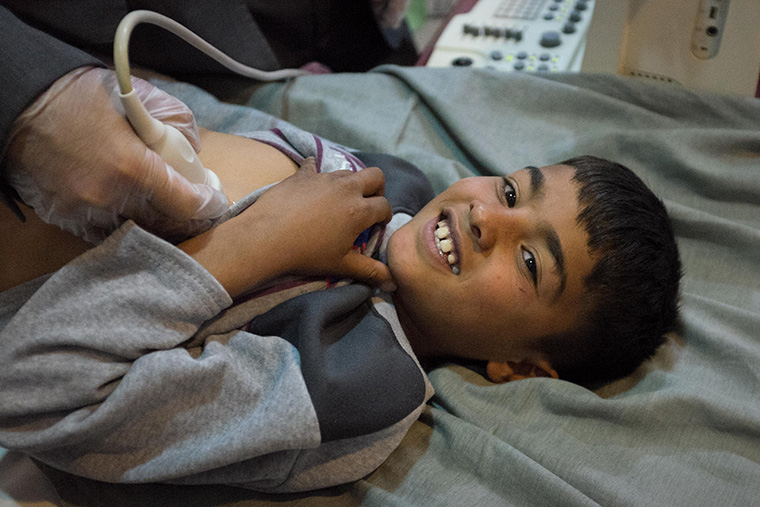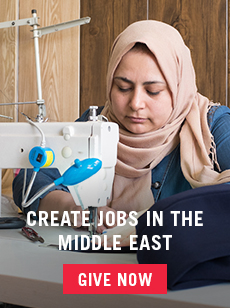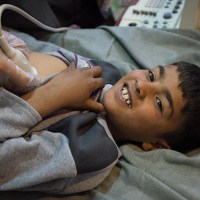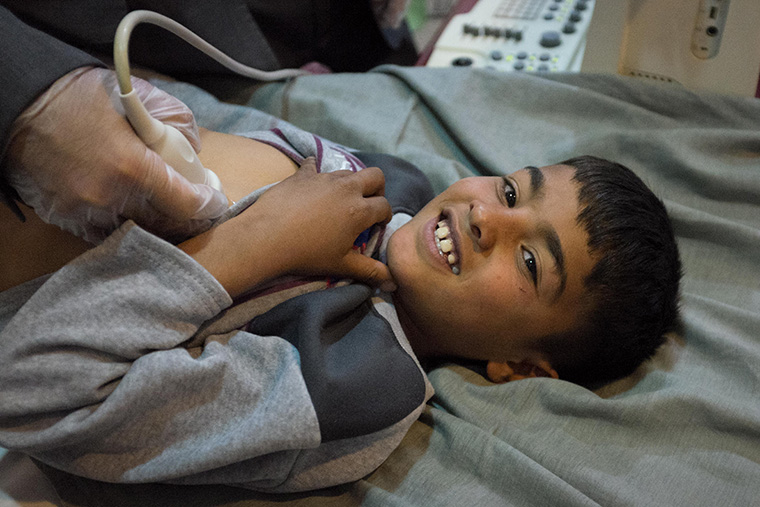
It is so easy to forget that Mohammad is sick. Every time I look at him, he gives me a 1000 watt smile. I make silly faces at him as Dr. Aso rolls the ultrasound wand across Mohammad’s chest and the base of his throat. “It’s a complicated case” Dr. Aso notes.
Mohammad’s father stands beside the examination table. He seems nervous, and is a little confused about the details of earlier tests. It doesn’t matter. Dr. Aso doesn’t look at the old test results—he starts from scratch. Dr. Aso lets each heart speak for itself, literally. For brief snatches of time, the whooshing sound of Mohammad’s blood fills the examining room as the echocardiogram machine transmits the beat of his heart.
“It’s a complicated case.”

When we first met, Mohammad’s family were standing outside the empty rooms of a tiny, crumbling house, trying to figure out how to start over. They had been forced from their home in southern Iraq, not by ISIS, but by Shia militias who didn’t welcome the presence of Sunnis. The house was abandoned years before. It stands behind an abandoned shop, in an abandoned business district, in an abandoned town.
It’s hard not to see it all as a metaphor for Mohammad’s family.
We arrived that day with basic relief aid. Within minutes, Mohammad’s father told us about his boy. “My son is sick. It’s his heart.” It wasn’t a surprise to hear—they come from the very region where congenital heart defects are so common. Mohammad’s father wanted to know if we could help.
Dr. Aso’s clinic is small—when he passes the ultrasound wand over Mohammad’s chest, the sound fills the room. He is hopeful about this case and knows where to find professionals with the specialized skills needed—our doctors, who will be arriving to treat these kinds of complicated cases.
But the solution itself is now complicated. Our medical partners will be working out of a hospital in the south. Mohammad and his family have just come from the south, driven by Shia militia. Will they have the courage to return? Will they have the courage to allow the international team, as well as Shia doctors and nurses, to treat his son?
We ask Mohammad’s father if he is willing, and his answer is immediate: yes! Yes, he’s willing to do whatever it takes to help his boy.
And in that moment, we have hope too.


